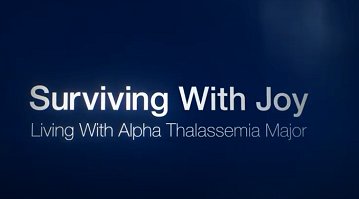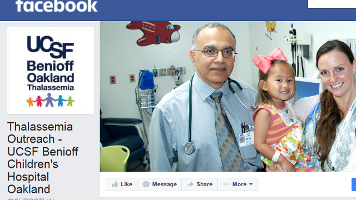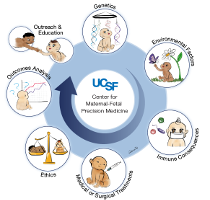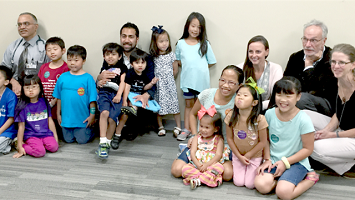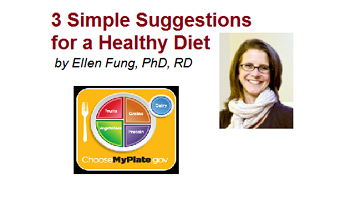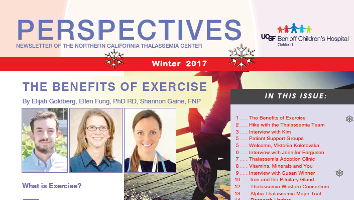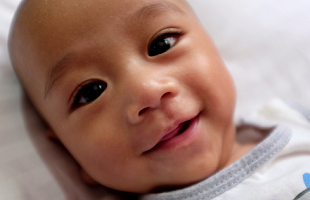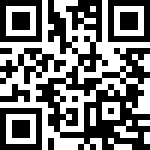by Meghan Foe, Outreach Coordinator
December 2018

Dr. Li Zhu
Last month, the Chinese news channel KTSF aired a segment about thalassemia on their talk show, Mandarin Journal (華人叢刊),
a Mandarin-language talk show featuring subject matter experts on a variety of topics that affect Chinese communities in the Bay Area.
The thalassemia segment featured Dr. Li Zhu, who began collaborating recently with the Northern California Thalassemia Center as part of an
ongoing effort to raise awareness about thalassemia in at-risk communities. Dr. Zhu went to UC Davis for medical school and did her residency at
the Children’s Hospital Oakland. She practices now as a general pediatrician in San Leandro. Dr. Zhu speaks Mandarin as her native language and serves
a predominantly Asian population in her pediatric practice. As a result, she is passionate about issues that disproportionately affect Asian
communities, such as thalassemia. Next year, her pediatric practice will merge with Asian Health Services, which seeks to promote health equity
for diverse Asian communities by providing health, social, and advocacy services. Dr. Zhu also currently serves on a steering committee to promote thalassemia standards of care. In this interview, we talk to Dr. Zhu about the health disparities and the importance of culturally-aware health care, what drew her to collaborate with our thalassemia program, and more.
It feels like you’re really nested in the Bay Area, or in Northern California, since you went to medical school in Davis, did your residency at Children’s Hospital Oakland, and now work in San Leandro. What are some of the relevant health issues or things that you think about as a doctor or health care provider in the Bay Area?
I love how I can use my native language to serve the population that I currently serve, which is mostly Asian. I also love how there are people from all over the world who live right here in Oakland. It’s really exciting to have our children grow up here. At the same time, different languages and cultures can create barriers to health care, and we see that all the time. For example, if the parents can’t speak English well enough to make an appointment, or communicate with the doctor, it can be a problem.
Also, there is a lot of inequality in the Bay Area. Being at Children’s [Hospital Oakland] while I was a resident, I was aware of how Oakland was divided between these very affluent neighborhoods and these very poor neighborhoods. It still is. I serve some highly-educated, well-off parents, but then I’ve also had parents who do not have a place to live, or miss their doctor’s appointments because they couldn’t get a ride or have money to take the bus.
What do you feel like is the role of the health care system and health care provider in bridging those disparities?
I’ve always wanted to help the most underserved patients, meaning the minority, the immigrants, the non-English-speaking, the poor. I believe that every child has the right to health care. I think universal health care is definitely the ideal way so that everybody has equal access no matter their income or whether or not they have a job; everybody is taken care of. We need more places like UCSF Benioff Children’s Hospital Oakland– places that provide care to all children no matter their social position.
That transitions well to your work with the Asian Health Services. Can you tell me about that?
The private practice where I currently work, Pediatric Medical Associates, will merge with Asian Health Services next year. I feel very fortunate to have worked with Drs. Lawrence Ng and Shirley Lau for the past 13 years. Dr. Ng started the practice and has been serving generations of patients in the Bay Area for 48 years. As Dr. Ng and Dr. Lau approach their retirement, Asian Health Services became interested in absorbing our practice into their organization. It’s a very good fit, because most of my patients can continue to see me, and many are Chinese speaking. I’m excited to become a part of this large non-profit community health center that provides high quality, comprehensive care to the underserved Asian communities. This new role aligns well with my desire to help the underserved.
What is important about providing care that is specific for the Asian community, from your perspective?
I know from the perspective of the family, who, let’s say are Chinese-speaking. They are relieved to find a doctor who speaks their language with whom they can comfortably communicate. Often parents in our practice want to know if the specialist we are referring their child to speaks Chinese, because many of our parents don’t speak English fluently. There are cultural differences, too. They are more comfortable with someone who actually understands their culture, who understands that there are other, more traditional ways of approaching health and keeping healthy.
Can you give an example of a way in which you try to be inclusive or aware of cultures that might be different from the dominant American culture in your practice?
I talk to my patients a lot about health care maintenance, such as eating well, exercising regularly, limiting screen time, proper sleep, all of those things. There are some cultural practices that are very different from the American culture. Here’s an example: drinking water. In general, most doctors tell people to drink a lot of water, right? Water is definitely the best choice when compared to sweetened drinks, but the amount needed depends on the person and on the circumstance. People here are used to ice water, but in Chinese culture, ice water is not so healthy, and a big no-no for post-partum moms. Nurses who are very culturally aware won’t give a big pitcher of ice water to Chinese moms right after they have their baby, because in that first month, they need to drink warm fluids, soups and eat warming foods such as foods cooked with ginger. Nothing cold, because they’re still in the state of recuperation, and they are very susceptible to damaging elements such as cold.
So we can transition now into talking more about thalassemia. How did you first become interested in learning more about thalassemia, and how did you become involved with our thalassemia program?
I don’t know either! I think the Universe just sent me an email. I got an email from Dr. Vichinsky one day, who had been trying to reach out to the Asian community about screening for thalassemia and had not had much success. So, the opportunity came up that KTSF wanted to interview a Mandarin-speaking doctor about thalassemia. I said, “Sure!” I didn’t know much about thalassemia other than what I learned back in residency, but I speak Mandarin, and I could learn.
When Dr. Vichinsky and I spoke on the phone, what struck me was that these babies with alpha thalassemia major were being lost in the second or third trimester. Even early miscarriages are traumatizing for parents. Imagine having a baby who dies in the second or third trimester, that’s just not the kind of thing we want to happen to a family.
Also, I became very excited about the fetal transplant study[for alpha thalassemia major]. Both fetal transfusion and how it could completely reverse all the changes that would happen, and the fetal stem cell transplantation project sounded very exciting to me. As a high school student, I worked in a lab at Children’s Hospital Los Angeles that did gene therapy research. I spent a few summers isolating plasmids and running gels. My mom, who worked for that lab, did stem cell research. She was phenomenal in getting stem cells to differentiate into all kinds of blood cells in vitro. So it felt like I came full circle back to that. I felt very excited to be this messenger to tell the Chinese community that there are exciting treatments just around the corner.
What do you think is important to communicate about thalassemia to the general or at-risk population?
Like we talked about in the KTSF interview, not a lot of people are aware of how common it is. The carrier rate can be super high in some communities.
[The second is] knowing how it can affect their kids. It’s really important for prospective parents who are planning to conceive to know about prenatal testing and pre-conception testing.
[Third is] for people to understand how severe thalassemia can affect a person. For example, they need to have chronic transfusions, or they need to undergo some major, risky procedures like bone marrow transplantation. It’s not an easy thing for a family or a child to take on those kinds of extra tasks in addition to living their regular life. I think many of these kids probably develop a great strength, living with something that’s different, that requires extra attention and bravery and courage to live with.
So I’d really like the general public to know a little more about thalassemia, and to care enough to screen themselves or to alert their friends and family members. Also, [I’d like them] to care enough to help in preventing severe thalassemia or contribute to research, or anything they can do to help reduce the suffering of people affected with severe thalassemia.
I was thinking about how you told me that thalassemia in Chinese means "Mediterranean Anemia."
Yeah, the term we use is, "地中海贫血 / 地中海貧血" (di4 zhong1 hai3 pin2 xue4/dei6 zung1 hoi2 pan4 hyut3) or another term I heard was, "海洋贫血 / 海洋貧血" (hai3 yang2 pin2 xue4/hoi2 joeng4 pan4 hyut3) which means, "Mediterranean anemia" or "Oceanic anemia" because it occurs in the coastal regions. A lot of people may misunderstand it as something that occurs in the Mediterranean region and not in Asian regions.
Now, you are a part of a steering committee for promoting thalassemia standards of care led by our Center. You’ve talked about what’s important for the general population to know about thalassemia, but to flip the question, why do you think it’s important for a community physician to have input in thalassemia care?
Because we are on the front lines. Pediatricians, especially, see new families all the time. These are families who may not have any diagnosis or might not know they are carriers. We need to be very aware of the illness so that we can detect anemia and refer them properly. We need to identify the carriers and new patients out there and alert the potential parents about this, so they can be very well informed about their chance of having a child with thalassemia.
When you’re not working, what do you like to do?
My husband and I like spending time with our three kids. We enjoy nature, so we like to take them hiking and camping, in national parks for example. I started meditating regularly about a year ago. That was part of the reason I took on this TV interview. Meditation really opened me up as a person, helping me become aware of the connection between everything and everyone. I realized despite my personal limitations, whatever I can do to benefit others is worth undertaking. I welcomed this opportunity to serve the community, and it sure was a good learning experience.
Updated 1/8/2019

